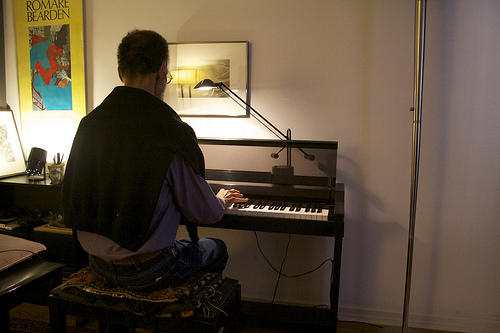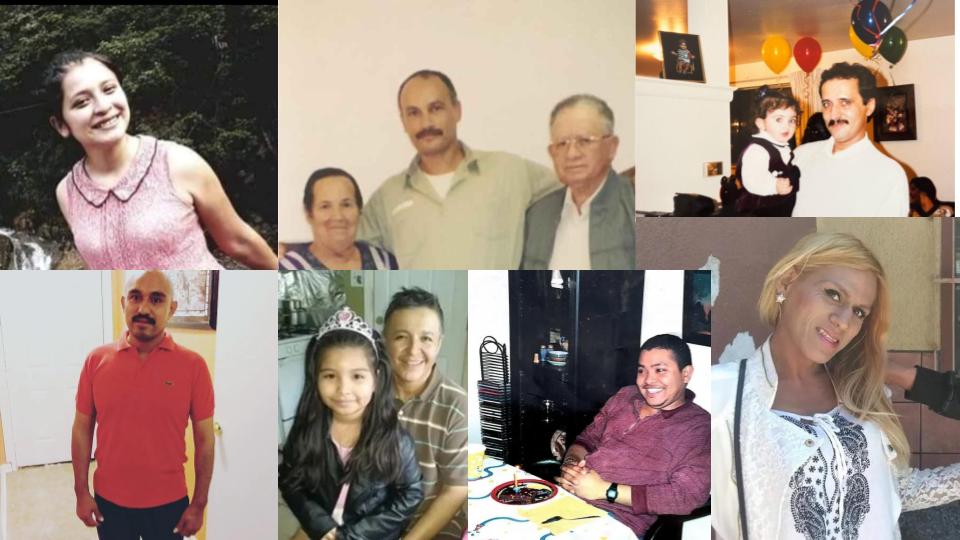When Richard Kelso was diagnosed with HIV in 1987, he was devastated. In the late 1980s, scientists and physicians were still trying to understand the virus. The available medications they used to treat HIV were often toxic and untested.
But Kelso’s devastation quickly gave way to hope that he could live with this illness. The clinician at the Chelsea Health Clinic in New York, where he was diagnosed, gave him a stack of pamphlets about HIV as well as support groups he could attend.
“Even though I was frightened of the prospects, she made it seem like there was a possibility that it was not a death sentence,” said Kelso, 71, sitting on a piano bench in his Chelsea apartment. “There was something I could do that could be helpful and I didn’t have to just go home and wait to die.”
For the first five years after he was diagnosed, Kelso treated himself with a regiment of Chinese medicines and herbs to boost his immune system. It was the beginning of a series of experiments in staving off the virus. Eventually he began taking pharmaceutical drugs to manage his illness. He says he has never been hospitalized because of HIV.
“The medications have been miraculous,” said Kelso. “As somebody who is aging with HIV, the biggest hurdle is to just deal with the apprehension about death and my health from day to day.

Richard Kelso,71, has lived with HIV for 30 years. He says becoming an expert on your own health is a survival strategy. Photo credit: Leticia Miranda
By the mid-1990s, treatment for HIV drastically improved which meant that people like Kelso had the chance to live a longer life. Now he is one of a growing number of people who are living longer with HIV as treatments have become more effective. But even with these advances, patients with HIV and their physicians have a more complex challenge ahead of them as they try to treat HIV along with the typical illnesses that come with aging.
Many people aging with HIV face what clinicians call “multi-morbidity,” which means the patient has multiple incurable health issues that are treatable. In Kelso’s case he has to be treated for HIV as well as cholesterol, which is a result of aging not the virus or medication. Traditionally, doctors are trained to treat HIV apart from other health conditions. In geriatric medicine, doctors are trained to work with patients older than 65 with multiple health issues but may not know how to treat HIV along with those other illnesses.
This kind of treatment is essential to people aging with HIV. They are at a higher risk for diabetes, cardiovascular disease, early frailty and kidney failure. The medicine to treat these could aggravate the HIV and the HIV treatment could have a damaging affect on their other health conditions.
“We call it going from the silo of treating HIV and now going to treating the whole person at once,” said Steve Karpiak, senior director for research and evaluation with ACRIA, an HIV research organization. “The question is what is the primary disease that has to be managed? The reality is they all have to be. It’s a balancing act and it’s best done through a team approach with the patient.”
But health care is not the only issue confronting some people aging with HIV. They are often more likely to have weaker social networks than people who are not infected with HIV. Many of them are isolated from their families because of their illness or sexuality. The networks they do have are mostly other HIV-infected people who may not be able to provide the kind of long-term care they will need.
“Some live alone and don’t have a partner,” said Bill Mendez, a case manager at Services and Advocacy for GLBT Elders, who runs a support group for people aging with HIV. “There’s a lot of anger and a lot of resentment towards their family or siblings. They don’t hear from them. They don’t speak to them. They come here for support.”
Kelso has over 30 years of being his own advocate and has created a healthy and full life for himself. Over the years he has had to become an expert on his own illness.
“We treat our doctors as consultants not as a god who dispenses medicine,” said Kelso about the SAGE support group. “You have to take control and be your own best advisor. Don’t take what the doctor says as a mandate that you have to adhere to because sometimes they don’t know. As new medications come along they dispense them but they don’t know what the long-term effects are. It’s up to you to sort of keep on top of that.”


Comments
I found the piece moving, and informative.